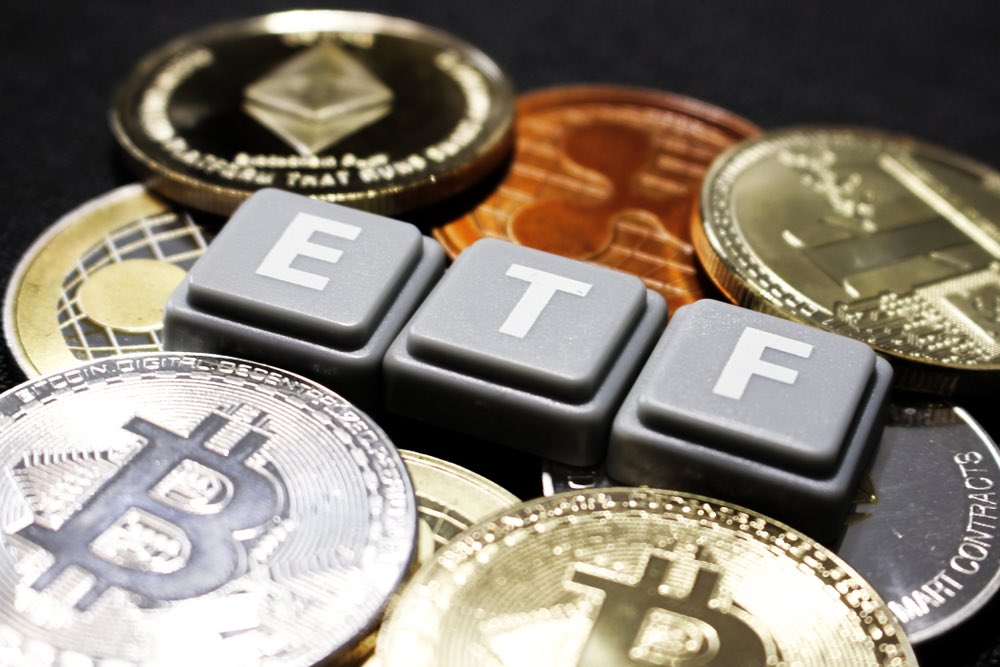Bloomberg Opinion: ProShares Bitcoin ETF Has Some Potential Risks
This article comes frombloombergThis article comes from

, the original author: Jared Dillian, compiled by Odaily translator Katie Koo.
With much anticipation, ProShares Bitcoin Strategy ETF started trading on Tuesday, US time.
First of all, it needs to be clear that this is not a fund backed by Bitcoin (spot), but by futures linked to Bitcoin. It is crucial to understand the difference between the two rather than rushing in.Looking back at the traditional fund market, the vast majority of mutual funds and ETFs based on commodities are backed by futures, but do not actually store physical goods, such as oil.And the majority of trading activity and liquidity for virtually all commodities tends to take place in futures markets, not spot markets.。
The United States Oil Fund LP is a classic example of a futures-backed commodity fund. The fund had a scandal in 2020 when it violated its prospectus by issuing negative quotes to prevent the fund from going under when oil prices fell. This case at least shows that futures ETFs may have some "weird" unexpected risksBut the bigger reason people oppose futures-based ETFs is actually the cost of arbitrage.
When futures are in contango, or when the price of the deferred delivery month contract is higher than the price of the front month contract, the cost of moving a futures contract from one month to the next is high and is passed on to investors. This has been one of the reasons people have complained about commodity futures ETFs for years.
While commodity futures are often traded in contango, they can also trade in backwardation, where the month's contract for delivery falls below the front month's contract. In this case, the investor earns a positive roll yield. Many commodity futures are currently trading in backwardation, while Bitcoin is in contango, and of course Bitcoin may one day be in backwardation as well.
Gold ETFs are an example of holding spot gold rather than futures because physical gold is relatively simple to store and account for (compared to oil).So why can't a bitcoin ETF hold actual bitcoin?The SEC’s main objection to physical bitcoin funds is that the underlying market is unregulated.
The gold market is not regulated, and we have physical gold ETFs, why is that? Bitcoin researchers are trying to figure this out.
In my opinion, physical bitcoin ETFs should be allowed. Back in 2013, when Bitcoin was trading at less than $1,000 (now around $62,000), the Winkelvoss brothers, founders of cryptocurrency exchange Gemini, were the first to apply for Bitcoin. Coin Fund, if approved, may now be the largest and most liquid ETF in existence and will provide strong returns for an entire generation of investors. This was a regulatory failure at the time. But at that time, Bitcoin’s technology was still relatively primitive, and cyber attacks continued to occur. The market sentiment at that time believed that Bitcoin was dangerous and unsafe. But at the moment it has matured a lot.From 2019 to 2021 I invested in physical Bitcoin through the Coinbase exchange and I was never satisfied with the investment. Because Coinbase suffers outages, customer service is not to my taste, and people keep hearing about lost cryptocurrencies or accounts being locked.
If a Bitcoin ETF existed, I would buy it. Because it's in a brokerage account, at the end of the year you get official tax documents to help with your tax returns, rather than making yourself mess with a messy transaction book.I think a Bitcoin spot ETF is possible one day, but not until at least there is a regulatory framework for the crypto market, which may take a few years. I don’t necessarily think the bitcoin futures ETF is getting worse for investors, it’s just going to face the same problems investors have been facing for 15 years in the commodity market:。
The bitcoin futures market is regulated, while the bitcoin spot market is not (at least lacking a well-established regulatory system)



